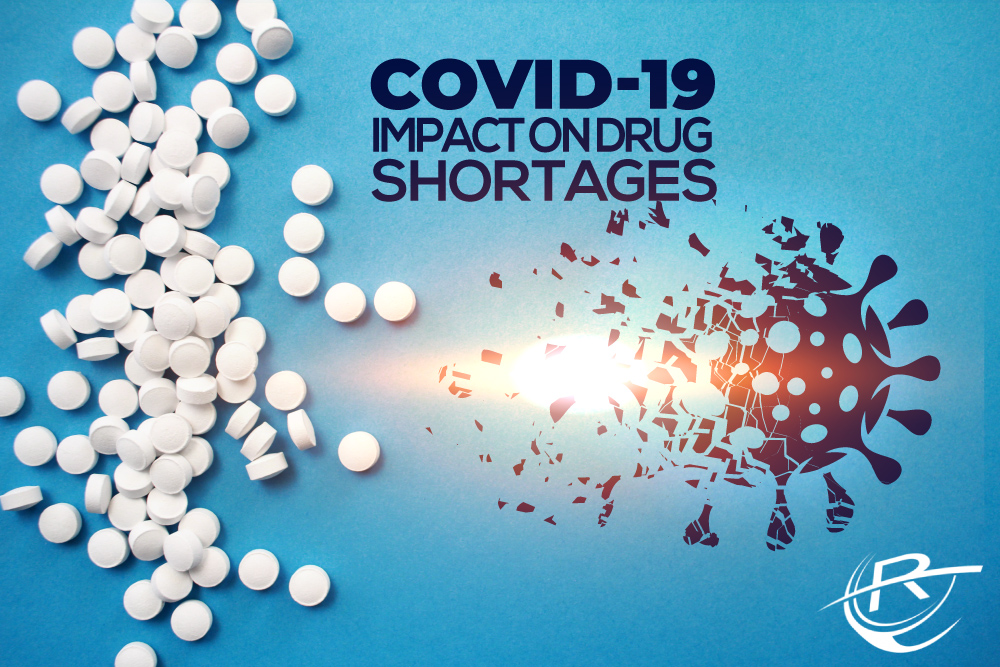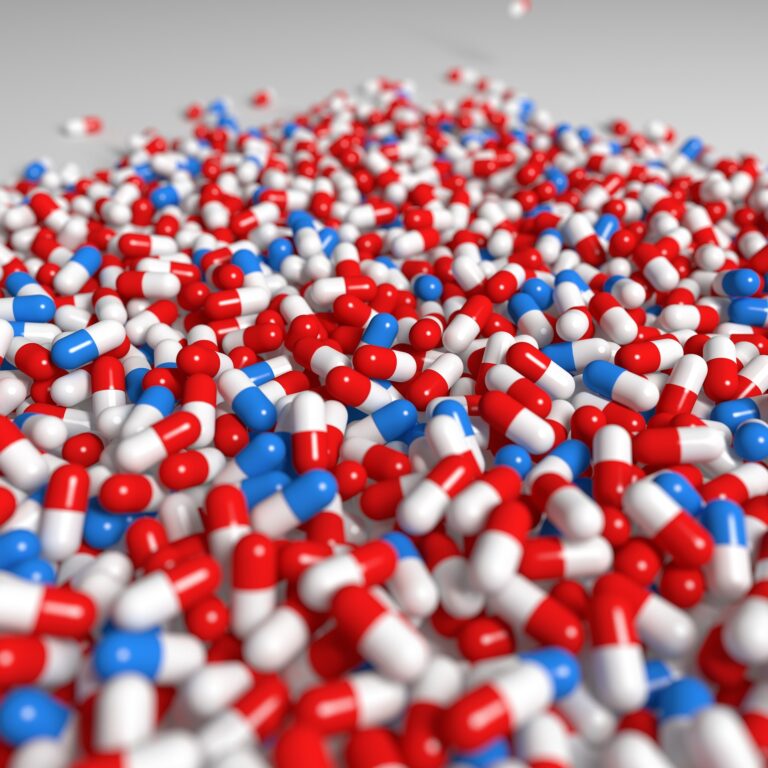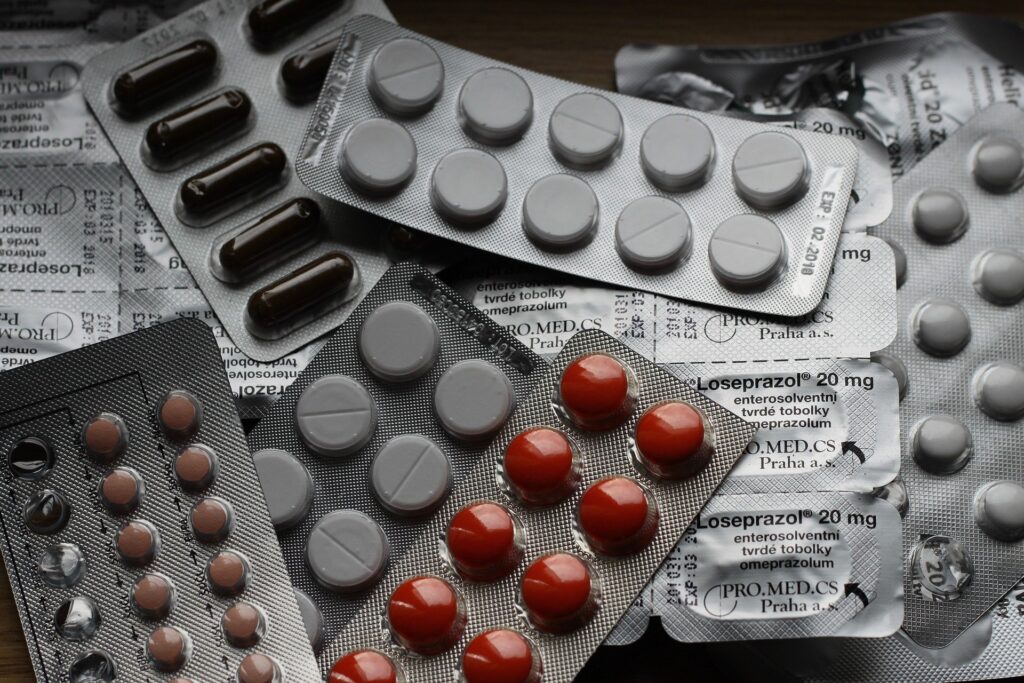COVID-19 and Its Impact on Drug Shortages

The prospect of drug and medication shortages isalarming under the best of circumstances. However, as the world continues to grapple with the effects of COVID-19 on the healthcare system, the problem of drug shortages has come into sharper focus. While drug shortages can (and do) occur under the best of circumstances on account of everything from quality control and manufacturing problems to supply chain disruptions, the overwhelming pressure placed on the entire healthcare ecosystem by the pandemic has taken its toll on drug and medical supplies as a result.
According to Sara Berg, Senior News Writer for the American Medical Association (AMA):“Drug shortages remain an ongoing public health concern in the U.S. With increases in new shortages, patient care and pharmacy operations are severely impacted. Prior to COVID-19, hospitals were already experiencing shortages of key injectable drugs. However, unprecedented demand due to large numbers of critically ill patients with COVID-19 has worsened drug shortages, says an AMA Council on Science and Public Health report adopted at the November 2020 AMA Special Meeting.”
COVID-19 patients requiring medical treatment and hospitalization are among the most vulnerable to drug shortages, but non-COVID-19 patients taking medication to manage chronic illnesses and conditions are also at risk of serious health complications from drug shortages.
How COVID-19 Contributes to Drug Shortages

The outbreak of COVID-19 has affected the global drug supply chain in a number of ways. Treating patients with severe coronavirus symptoms has driven up demand for the drugs like sedatives, analgesics, and paralytics as more and more COVID-19 patients require ventilation for weeks or months at a time. Shortages in essential drugs obviously make it more difficult to manage the influx of seriously and critically ill COVID-19 patients, but they also divert resources from other patients battling medical problems that require access to these drugs.
COVID-19 is a complex illness that affects different patients in different ways, and there are a number of variables involved in treatment, including the drugs needed to intubate patients, treat infections, and manage symptoms and the progression of disease once a patient becomes symptomatic. Drugs like hydroxychloroquine made headlines in 2020 as a potential breakthrough treatment for COVID-19 patients, but it’s only one in a growing list of drugs that are facing shortages due to the role they play in treating coronavirus infections.
Drugs to manage pain and keep patients comfortable during the intubation process, as well as antibacterial and respiratory drugs, are especially at risk of shortages. However, many of the drugs used to treat COVID-19 are also essential for treating everything from malaria to low blood pressure and lupus. Some of the common drugs facing COVID-19 related shortages in the last year include:
- Albuterol and fluticasone inhalers
- Chloroquine phosphate
- Sodium chloride
- Propofol
- Haparin
- Ampicillin sodium
- Fentanyl
- Norepinephrine bitartrate
- Hydrocortisone
- Dexamethasone sodium phosphate
- Doxycycline hyclate
- Etomidate
- Meropenem
- Azithromycin
- Dexmedetomidine hydrochloride
- Midazolam
- Dobutamine
- Ketoprofen
- Furosemide
- Ceftazidime
- Ropivacaine hydrochloride
- Rocuronium
- Dopamine hydrochloride
- Cisatracurium beylate
- Vecuronium bromide
As the above list suggests, shortages in critical drugs like heparin and sodium chloride (used for IV bags) can be devastating for hospitals and clinics and the communities they serve.Skyrocketing demand for drugs used to treat COVID-19 patients is just one of the problems making the drug shortage problem worse. Global lockdown mandates and materialshortages have also caused disruptions at various levels of the drug manufacturing and supply chain. In countries like the United States, where healthcare is also a business driven by profit margins and the laws of supply and demand, a sudden, unforeseen shock to the system like a global pandemic can throw off projections, divert resources, and cause disruptions in the supply chain.

According to Christina M. Bookwalter, PharmD, BCPS, clinical pharmacist at the Womack Army Medical Center in Fort Bragg, North Carolina:
“The supply of goods to the market directly relates to the quantity of goods coming off the production lines over a given time. In order to produce a drug, raw materials must be acquired. The drug-manufacturing process is wholly dependent on the supplier of the raw materials. Often, there are multiple manufacturers for a drug, but there may be only one producer of the raw material. Therefore, any interruption in the supply of the raw material will affect all manufacturers of the drug. Currently, about 80% of the raw materials for drugs are imported from abroad, making the American drug supply highly dependent on other countries. Even when adequate raw materials are available, there is a maximum capacity or a limited number of units that can be manufactured at a given time. Because the FDA approves a specific manufacturing line to produce a specific drug at a specific facility, amanufacturer cannot set up additional production of a drug in short supply elsewhere in the facility. Further limitations to production include the good manufacturing practices, chemical reactions, and in-process controls that must be in place to turn out a quality product.”
Unfortunately for pharmacies and hospitals, many of the factors that lead up to drug shortages are largely beyond their control, so that by the time a critical drug is in limited supply, pharmacists and clinicians are left struggling to meet their inventory demands. The U.S. Food and Drug Administration’s (FDA) Center for Drug Evaluation and Research (CDER) is working closely with manufacturers to identify problems along the supply chain that might affect drug access and availability. Wholesale pharmacy suppliers help hospital systems and pharmacies mitigate drug and equipment shortages.
To learn about what medications we have available or to subscribe to our list visit us here:



